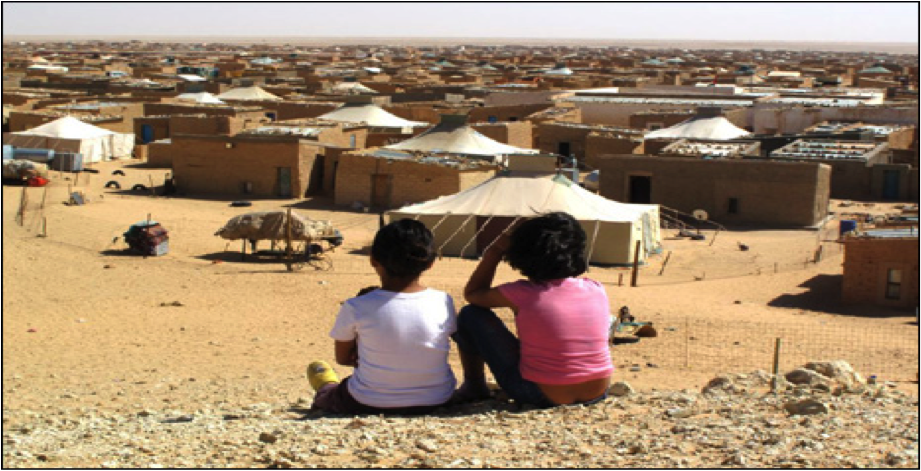The Struggle of Sahrawi Women for Freedom
With Fatma Mehdi, the Secretary General of the National Union of Saharawi Women
Friday March 9, 2012 at 6.30 pm
CUNY Graduate Center Room 5307
365 Fifth Avenue
This event is free and open to the public.
An interview with Fatma El-Mehdi by Bhakti Shringarpure is now available at Warscapes. The interview is cross-posted on Jadaliyya with audio.
In 1976, the national liberation movement of El Frente POLISARIO declared a Nation-State in a refugee camp: the Saharawi Arab Democratic Republic (SADR). Having colonized the Western Sahara since 1884, Spain abandoned the country in 1975 when the territory was illegitimately handed over to Morocco. While Saharawi men combated the Moroccan army in a 16-year long guerrilla struggle, Saharawi women and children took refuge in Southern Algerian desert territory nearby the city of Tindouf, an inhospitable region of the desert that can reach up to 52ºC in the summer. Notwithstanding, the pains of war, the strict dependency of humanitarian aid for survival, and the environmental harshness of their location the Saharawi national constitution made ‘citizens’ out of ‘refugees’ who today reside in provinces named after towns left behind in the Western Sahara.
While men combated in the invaded Western Sahara it was Saharawi women who built and administered the ministries, schools, mass civil unions, local councils and all other institutions that today make up the Saharawi Republic, as well as those who through their every day care and labor, thread the fabric of new social ties and bonds of a society transformed by their national revolution.
Since the ceasefire of 1991, the international community is still waiting for Morocco to fulfill its promise of organizing a referendum for self-determination in Western Sahara, while 200,000 people continue to resist domination from the Moroccan administration in the exiled Saharawi Republic and while a peaceful civil uprising is being violently repressed in the occupied land of Western Sahara.



